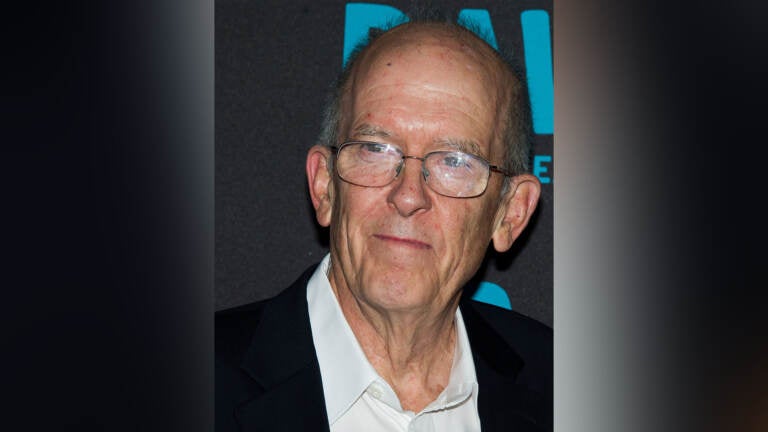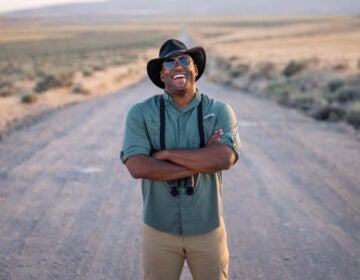Roger Payne, scientist who discovered whales can sing, dies at 88
Payne saw the discovery of whale song as a chance to spur interest in saving the giant animals, who were disappearing from the planet.

File photo: Roger Payne attends the Raw for the Oceans Spring/Summer 2015 collection show presented by G-Star RAW and Bionic during Fashion Week on Friday, Sept. 5, 2014 in New York. (Photo by Charles Sykes/Invision/AP)
Roger Payne, the scientist who spurred a worldwide environmental conservation movement with his discovery that whales could sing, has died. He was 88.
Payne made the discovery in 1967 during a research trip to Bermuda in which a Navy engineer provided him with a recording of curious underwater sounds documented while listening for Russian submarines. Payne identified the haunting tones as songs whales sing to one another.
He saw the discovery of whale song as a chance to spur interest in saving the giant animals, who were disappearing from the planet. Payne would produce the album “Songs of the Humpback Whale” in 1970. A surprise hit, the record galvanized a global movement to end the practice of commercial whale hunting and save the whales from extinction.
Payne was cognizant from the start that whale song represented a chance to get the public interested in protecting an animal previously considered little more than a resource, curiosity or nuisance. He told Nautilus Quarterly in a 2021 interview that he first heard the recording in the loud engine room of a research vessel and knew almost instantly that the sounds were indeed whales.
“In spite of the racket, what I heard blew my mind. It seemed obvious that here, finally, was a chance to get the world interested in preventing the extinction of whales,” he told the magazine.
Payne died Saturday of pelvic cancer. He lived in South Woodstock, Vermont, with his wife, the actress Lisa Harrow. Funeral arrangements have not yet been made, Harrow said.
Payne had four children from a previous marriage to zoologist Katy Payne, with whom he collaborated. The two used primitive equipment in the late 1960s to record the sounds of humpback whales, which sometimes sing their eerie, complex songs for longer than a half-hour at a stretch.
The impact of the whale song discovery on the nascent environmental movement was immense. Many anti-war protesters of the day took on saving animals and the environment as a new cause, and the words “save the whales” became ubiquitous on tote bags and bumper stickers.
Whale songs would enter the popular imagination via everything from a 1971 episode of “The Partridge Family” to a 1979 issue of National Geographic that included a flexi disc with excerpts from “Songs of the Humpback Whale.” It remains the best-selling environmental album in history.
Payne founded Ocean Alliance in 1971 to advocate for the protection of whales and dolphins. The organization operates to this day in Gloucester, Massachusetts. It has played a role in watershed moments in the history of whale protection, such as the 1972 passage of the Marine Mammal Protection Act by the U.S. Congress and the 1982 commercial whaling moratorium passed by the International Whaling Commission.
The world has lost a giant of environmental conservation with Payne’s death, said Iain Kerr, the chief executive officer of Ocean Alliance and a longtime collaborator with Payne. Payne retired two years ago.
“He had a presence and a way of connecting to people that led them to dedicating their lives to protecting whales and our planet Earth,” Kerr said.
Payne was born in New York City and educated at Harvard University and Cornell University, where he received his doctorate. Early in his career as a biologist, he studied bats and birds.
He met Harrow, his widow, in 1991 at a rally for whale protection at Trafalgar Square in London. They married within 10 weeks of meeting.
“The way his mind worked was a constant joy,” Harrow said. “He was constantly seeking answers, to seemingly constant questions.”
WHYY is your source for fact-based, in-depth journalism and information. As a nonprofit organization, we rely on financial support from readers like you. Please give today.




